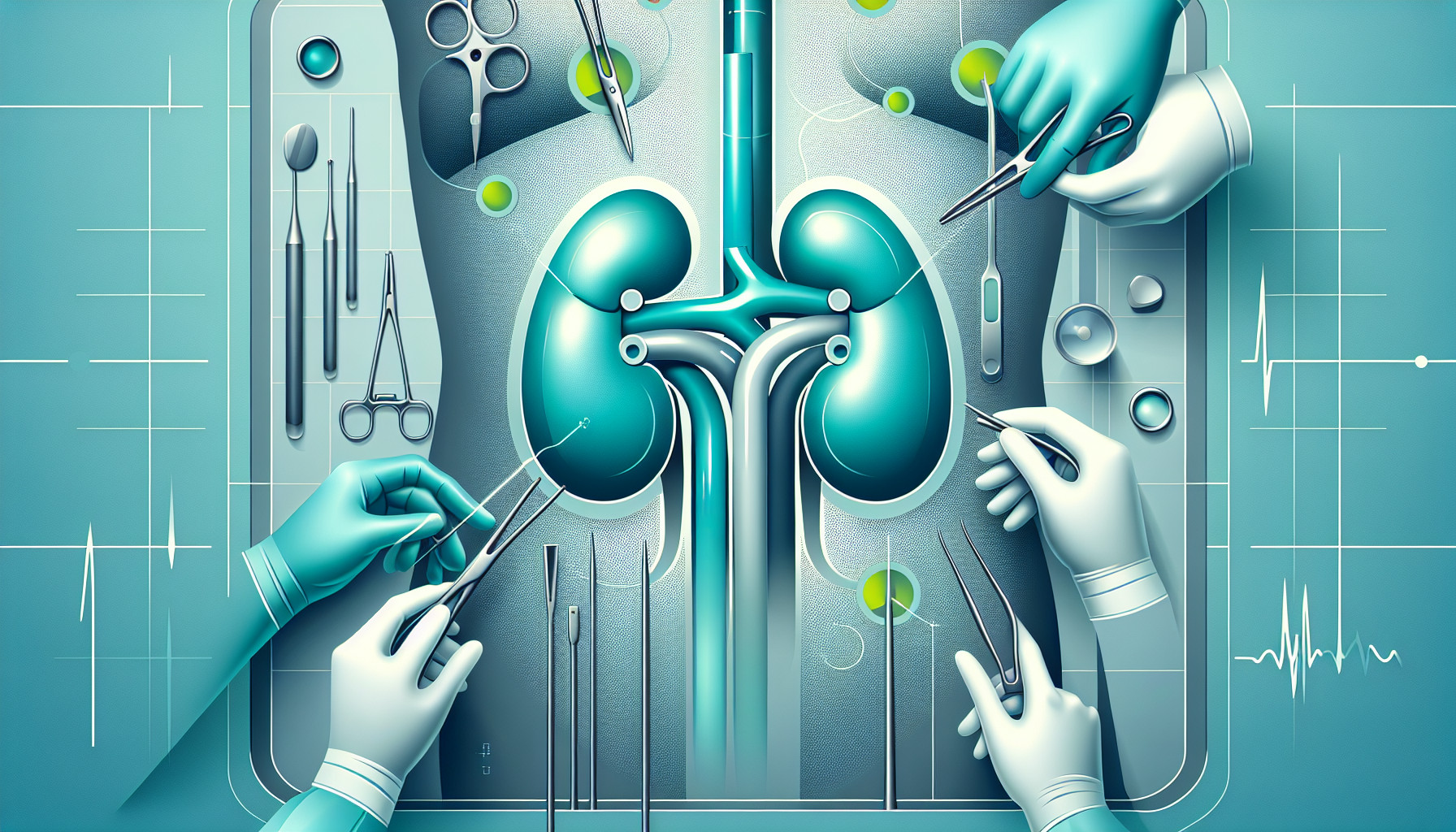Our Summary
This research paper looks at people who have received a kidney transplant. These individuals often struggle to control the concentration of their urine, but it’s not yet clear how this impacts their overall health and the success of their transplant.
To investigate this, the authors tested the urine of over 1,000 people who’d received a kidney transplant, three months after their surgery. They compared this group to a smaller group of healthy people who were potential kidney donors.
They found that most of the transplant recipients struggled to maintain the right balance of sodium in their blood when they drank a lot of water. This reduction in sodium levels was linked to an increased risk of death or transplant failure. The more the sodium levels dropped, the higher the risk. This association was still significant even when they excluded patients with high blood sugar levels.
The researchers also found that those with a greater decrease in sodium levels three months after their transplant had lower kidney function a year after the transplant.
These findings suggest that struggling to control urine concentration is common in kidney transplant recipients and can predict how well the transplant will work in the long run.
FAQs
- What are the common struggles faced by kidney transplant recipients in terms of urine concentration?
- How does the reduction in sodium levels after drinking a lot of water affect kidney transplant recipients?
- How does the change in sodium levels three months after a kidney transplant predict the long-term outcome of the transplant?
Doctor’s Tip
A tip that a doctor might give a patient about kidney transplant is to closely monitor their sodium levels and stay hydrated. It’s important for transplant recipients to drink enough water, but also to be mindful of their sodium intake to maintain a healthy balance. Keeping sodium levels stable can help improve overall health and the success of the transplant. Regular check-ups and communication with healthcare providers are key in managing these factors post-transplant.
Suitable For
Overall, patients who are typically recommended for a kidney transplant are those with end-stage renal disease or kidney failure who are not able to maintain their health through other forms of treatment such as dialysis. These individuals may have conditions such as chronic kidney disease, polycystic kidney disease, diabetes, high blood pressure, or autoimmune diseases that have severely damaged their kidneys.
In general, candidates for kidney transplant are evaluated based on various factors including their overall health, age, medical history, and ability to comply with post-transplant care. Patients who are younger, in good overall health, and have a strong support system are often considered good candidates for kidney transplant. Additionally, individuals who do not have any major medical conditions that would affect the success of the transplant, such as active infections or cancer, may also be recommended for a kidney transplant.
It is important for patients considering a kidney transplant to undergo a thorough evaluation by a transplant team to determine if they are suitable candidates for the procedure. This evaluation may include blood tests, imaging studies, and consultations with various healthcare providers to assess the patient’s overall health and readiness for a transplant. Ultimately, the decision to recommend a kidney transplant is made on a case-by-case basis, taking into account the individual patient’s unique medical history and circumstances.
Timeline
Timeline before and after kidney transplant:
Before transplant:
- Patient is diagnosed with end-stage renal disease and is deemed a candidate for a kidney transplant
- Patient undergoes evaluation and testing to determine eligibility for transplant
- Patient is placed on the transplant waiting list and waits for a suitable donor
- Patient undergoes dialysis to manage kidney function while waiting for a transplant
- Patient receives notification of a suitable donor and prepares for transplant surgery
After transplant:
- Patient undergoes kidney transplant surgery and is closely monitored in the hospital for complications
- Patient is started on immunosuppressive medications to prevent rejection of the new kidney
- Patient undergoes regular follow-up appointments and monitoring to ensure the success of the transplant
- Patient may experience side effects from immunosuppressive medications and other complications related to the transplant
- Patient gradually resumes normal activities and may experience improved kidney function and overall health
- Patient continues to receive regular medical care and monitoring to maintain the health of the transplanted kidney
Overall, the timeline before and after a kidney transplant involves a series of medical evaluations, procedures, and ongoing care to ensure the success of the transplant and the health of the patient.
What to Ask Your Doctor
Some questions a patient should ask their doctor about kidney transplant in relation to urine concentration and overall health include:
- How does urine concentration impact the success of my kidney transplant in the long term?
- What factors can affect my ability to control the concentration of my urine after receiving a kidney transplant?
- How often should I monitor my urine concentration levels post-transplant?
- Are there any specific dietary or lifestyle changes I should make to help maintain the right balance of sodium in my blood?
- What symptoms should I watch out for that may indicate a problem with my urine concentration?
- Are there any medications or treatments that can help me better control my urine concentration after a kidney transplant?
- How does urine concentration relate to my overall kidney function and health post-transplant?
- What steps can I take to minimize the risk of death or transplant failure associated with changes in sodium levels in my blood?
Reference
Authors: Mazloum M, Jouffroy J, Brazier F, Legendre C, Neuraz A, Garcelon N, Prié D, Anglicheau D, Bienaimé F. Journal: J Am Soc Nephrol. 2019 Jul;30(7):1282-1293. doi: 10.1681/ASN.2018121269. Epub 2019 Jun 19. PMID: 31217325
